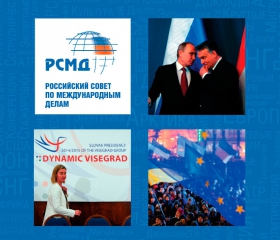A parliamentary election took place in Poland on October 25, 2015, bringing quite an entertaining end to the hot political season: the Law and Justice Party will be able to form a government without a coalition; left-wing parties remain outside Parliament; and Pawel Kukiz – an “anti-system” candidate, as he calls himself – will try to change the system from inside. The Civic Platform finished second.
The Speed of Changes
The party system of the Republic of Poland is extremely interesting to observe and analyse. The logic behind its development could be described as overcoming its post-communist nature. The understanding of this process was determined by replacing the political and ideological confrontation between the “post-democratic opposition” and the “post-communists” with a new party spectrum configuration related, in the first instance, to the parties’ positions on the so-called “new choice” (which did not feature on the agenda earlier on), eliminating the left side of the political spectrum (the direct successor to the Communist Party), and the appearance of new relevant players competing for – and winning – parliamentary seats.
The recent election has shown that the political process in 2015 is no longer a reflection of the “winners” and “losers” in the process of social, economic and political transformation.
Demand for Change – The New Content of the Polish Political Process
The presidential election was won by Andrzej Duda, a little-known bureaucrat and Member of the European Parliament put forward by the Law and Justice Party (link in Russian). Only a short while ago, Bronislaw Komorowski was considered the overwhelming favourite to win the election, and the Civic Platform – the only reasonable power capable of governing state affairs, and Jaroslaw Kaczynski’s party – a thing of the past. Changes in the Polish political arena happen immediately.
The parliamentary election has proved that the extraordinary dynamics of change are perhaps the most important feature of the modern political space, which is increasingly influenced by political communication technologies. Political parties emerging out of nowhere and headed by people who have no experience in politics (like Ryszard Petru’s Modern party, which was only registered in September 2015) manage to become important political actors in no time whatsoever. And traditional parties, which rely on their extensive regional structures and the experience of their functionaries, suffer defeat. It is obvious that situations where one good joke can catapult you get to the top of the political Olympus are becoming more and more frequent, as are those where a harmless communication mistake can ruin even the most prudent politician.
There’s nothing new about the fact that a successful political campaign in terms of marketing is much more important than the essence of competition, but it’s quite impressive how soon leading politicians and those who used to appear on evening news are forgotten. By the way, not a single left-wing party made it into the Sejm: the United Left coalition led by former Prime Minister Leszek Miller fell short of the vote threshold, meaning that it actually dropped out of the relevant political process right into oblivion.
Not too long ago, citizens of big cities (in case of Poland, cities with a population exceeding 500,000) voted for the Civic Platform, being apprehensive about the national-conservative attitudes characteristic of its main opponent, the Law and Justice Party, that traditionally won in small towns in villages. According to surveys published by Gazeta Wyborcza, yesterday’s election was won by the Law and Justice Party in all age groups, as well as in all big cities and social strata. The Civic Platform won a narrow majority in just two regions – Pomerania and Opole Voivodeship.
Donald Tusk’s political heir, current Prime Minister Ewa Kopacz, turned out to be too mild and weak to lead the Civic Platform during the times of political turbulence. Some politicians, including Radoslaw Sikorski, demanded change in the party itself, as two defeats in a row – at the presidential and parliamentary elections – were too frustrating for them.
Famous musician turned politician Pawel Kukiz has promised the media that the current parliament will not last long, and the mission of the third force in the lower house of the parliament is to dismantle the existing political microcosm, along with all the aspects that a proverbial “everyday citizen” finds unacceptable and negative.
The Polish People’s Party, which has been represented the Sejm since 1991, remains the only island of stability among all this political tension. It is most probable that the party would be part of a token coalition with the winner – although Jaroslaw Kaczynski’s party is able to appoint a prime minister by the votes of its deputies only.
What will future be like?
So what does the new political season have in store? What will the essence of the political process be? And which kind of country will the winners build?
Upon winning the presidential election in 2005, Lech Kaczynski (who later tragically died in a plane crash near Smolensk) said to his brother, the leader of the Law and Justice party: “Mr. Chairman, mission accomplished!” In 2015, Jaroslaw Kaczynski remembered his brother in his address to the Law and Justice Party’s election team members, who were celebrating a landslide victory in the parliamentary election: “Mr. President,” he said, “mission accomplished!” This is not just a mere sentimental moment. Winners in these recent elections will carry on with Lech Kaczynski’s political heritage, which involves defending Pole’s rights in other countries, building influence on Poland’s Eastern borders and remaining committed to the Transatlantic policy.
In the Polish bicameral political system, the Senate (the upper house of parliament) is more like a political retirees’ club, while the lower house – the Sejm – is the main venue where the most important political events take place.
The winning party’s candidate for Prime Minister will be Beata Szydlo, who has repeatedly stressed her admiration of the essence and style of Viktor Orban’s political activity. Referring to the Polish election, the Hungarian newspaper Vilaggazdasag commented that “Orban’s friends” had won. We should note here that the inevitable “Orbanization” of Polish politics would be another headache for Brussels, as the Law and Justice Party’s election platform and the rhetoric of its main members are far from being in line with European Union’s general policies.
The Law and Justice Party, which positions itself as a conservative party, declares it adherence to the principle of solidarity on economic issues, confronting values that are not common for Polish society, and the “cleansing” of the state’s domestic policy.
The proposals to modify the Constitution and extend the president’s powers (a definitive turn towards a presidential republic), as well as to downsize Parliament, were important aspects of the campaign.
The principles of social solidarity and state support of the economy seem populist, but the party’s politicians still stick to the programme for 2014, on which the election platform was based.
The current situation is ideal for the Law and Justice Party to implement its political principles: its majority in the Parliament’s lower house; the unambiguous social mandate for change (voter turnout exceeded 50 per cent); and the fact that one of its members is president of the country.
Us and Them
The Law and Justice Party consistently adheres to the principles of political realism, which involve fighting for national sovereignty in an extremely unstable world. There is no doubt that the idea of following the general foreign policy of the European Union unconditionally is frustrating for Jaroslaw Kaczynski and his proponents. One of the most serious claims of yesterday’s election winners against the Civic Platform’s period of governance include a sharp reduction of opportunities for influencing the closest neighbours, the absence of actual progress in establishing special relations within the Visegrad Group, as well as the de facto elimination of Poland as a prominent actor with its own interests, ambitions and projects from the global political arena.
There is practically no political exchange between Poland and Belarus even though bilateral trade is booming. Among other reasons, this happens thanks to the sanctions. The Civic Platform has been repeatedly accused by Jaroslaw Kaczynski’s supporters for not maintaining relations with Belarus – an important neighbour where there is a vast Polish community – and going along with EU’s strict policy of isolation towards Minsk.
A quote from the party’s programme: “Poland has become a passive observer and commentator of geopolitical processes, but not one of their participants or implementers.” It is obvious that by having a party consensus with the country’s president, the new Polish foreign policy will become tougher and more pronounced, including in relations with its powerful neighbours – Germany and Russia.
A strong army, a modern defence industry and consistent performance of the allied obligations lie at the core of the national security system. These points have remained unchanged for several electoral cycles in a row.
Poland has already made its geopolitical choice, and no personal and party changes will be able to turn the transatlantic development vector around. However, the achievement of national interests requires flexibility and space for cooperation, as the main point for the cooperation between Russia and Poland is the expediency and rationality of attitudes.
The parliamentary election that took place on October 25, 2015 will not become a new starting point in the development of the Russia–Poland relations, but the declared rationality in defining the objectives and tools of Poland’s foreign policy will create demand for trade and economic cooperation with Russia to be expanded, local cross-border movement between regions bordering Russia to be maintained, and non-political contacts (it was by no means a Russian initiative to put them on hold) to be developed.






